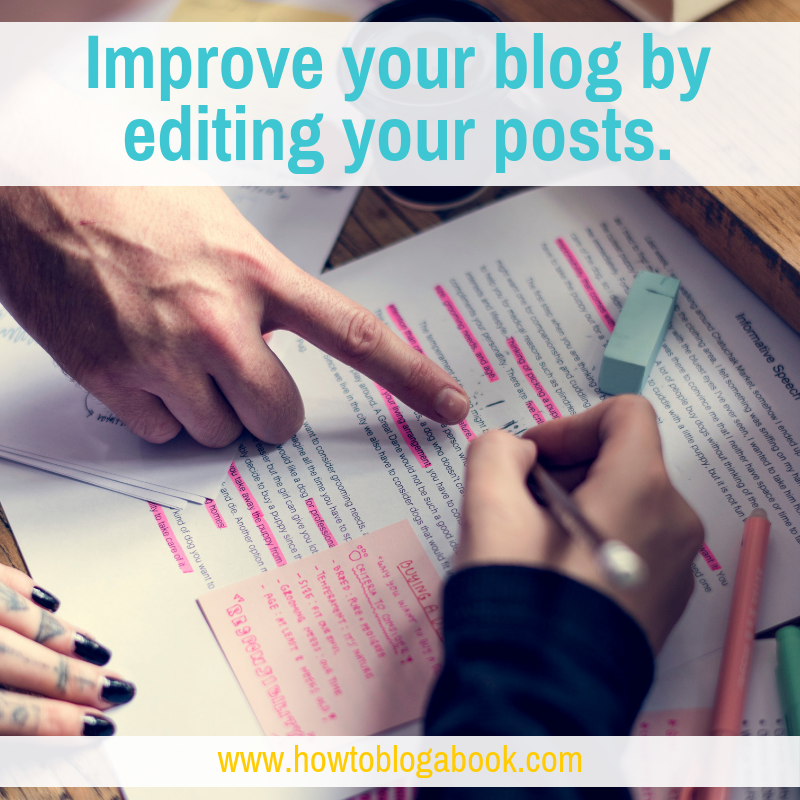Writing without revising is the literary equivalent of waltzing gaily out of the house in your underwear.
—Patricia Fuller
It’s strange that writing doesn’t encompass editing. The same word could apply to both…but it doesn’t.
When a composer shifts a note from natural to sharp, is the composer editing—or still composing? When you write a blog post but go back to re-write a sentence you just finished, are you editing—or merely drafting?
There may be no difference at all. But it’s clear that at some point, every writer ends up with a fundamental problem:
- They have something written down.
- That something isn’t as good as it could be.
Editing is the art of bringing that written piece up to the quality of the author’s original intention (or the quality required by an editor or publisher). While some writers are amazing editors—even of their own work, many are not. Fortunately for us, there are plenty of tools for editing our own writing that can make this process less frustrating. Here are just a few.
1. Grammarly
Grammarly is a free online app you can use to edit almost anything. You can import or copy and paste an entire document or type in just a passage or even compose an entire post into the app. The program quickly identifies the errors in your work. Although Grammarly does sometimes get it wrong—say, if you meant to use the passive voice in a sentence—it also helps fill in the gaps you might have missed along the way.
Grammarly Premium also steps in to make more advanced suggestions on topics like word choice and sentence structure—invaluable if you need a more “human-like” eye on your material. It’s a handy editor when it’s 3 a.m., and you’re fresh out of friends who are both awake and capable of helping.
2. Microsoft Word
Sure, it’s not the sexiest item on this list, but admit it: as far as word processors go, it can be hard to beat. Microsoft Word will identify plenty of grammar issues, automatically correct typos, and even make suggestions to improve your text.
If you’re writing directly into a blogging platform, you might consider adding an extra editorial step and starting your post in Microsoft Word. Much of the format will remain true even after you directly paste in your text, and Word’s easy features makes it possible to edit in a hurry.
3. Hemingway App
The Hemingway App—named for author Ernest Hemingway—wants you to get rid of those lengthy sentences. But be warned: it’s tough. If you have a tendency to ramble on in your writing, the Hemingway App is a great way to keep your language terse, simple, and easy to read.
4. Voice Dream
You may have heard the self-editing advice to read your work aloud. Doing so helps a lot, but sometimes you need to hear your words in another voice. Do it literally—and without bugging your friends. Voice Dream helps you listen to the words you’ve written, which in turn can help you identify the problems with your prose that you might not have “heard” in your internal monologue.
5. SlickWrite
SlickWrite is another way to check your grammar in a hurry, giving you the clarity you need to go back through your drafts and cut them down to size.
Whichever tool you pick—or even if you pick multiple tools—remember that editing is essentially another form of writing. It’s not wasted time or motion. It’s part of the process. The more tightly you edit your prose, the better your book will turn out. Don’t be afraid of a little polish now and again.
Editing Tools Galore
You may want to try some of the other self-editing tools as well. (I’ve chosen just five…) For instance, you could check out ProWritingAide, After the Deadline, or Autocrit. You’ll find most have similar functions. Test them out, and find the app that best suits your needs or style.
Whichever app you decide to use, you’ll soon find the tool invaluable and indispensible—especially if you are a blogger who writes, revises, edits, formats a post, and hits “publish” without time to send your work off to an editor. In fact, most bloggers don’t have the time or money to invest in sending work out to an editor. That’s what makes these apps so essential. The one you choose to use quickly will become your in-house editor.
What editing app do you like best and why? Tell me in a comment below.
About the Author
 Dan Kenitz is a freelance writer and ghostwriter from Wisconsin who helps individuals and companies build their brands through valuable content. www.empirewriter.com
Dan Kenitz is a freelance writer and ghostwriter from Wisconsin who helps individuals and companies build their brands through valuable content. www.empirewriter.com
Image copyrigh:Jmohamed_hassan / Pixabay.com


Nice post. I am using Grammarly premium but always run my work through Hemingway as well.
I quite like readable.io as well… a nice complement to Hemingway.
I am usually wary of copying and pasting from Microsoft Word into a blogging platform, as there are lots of metadata that can be copied over inadvertently, and that can affect CSS styles etc.
I’m off to check out Voice Dream – cheers!